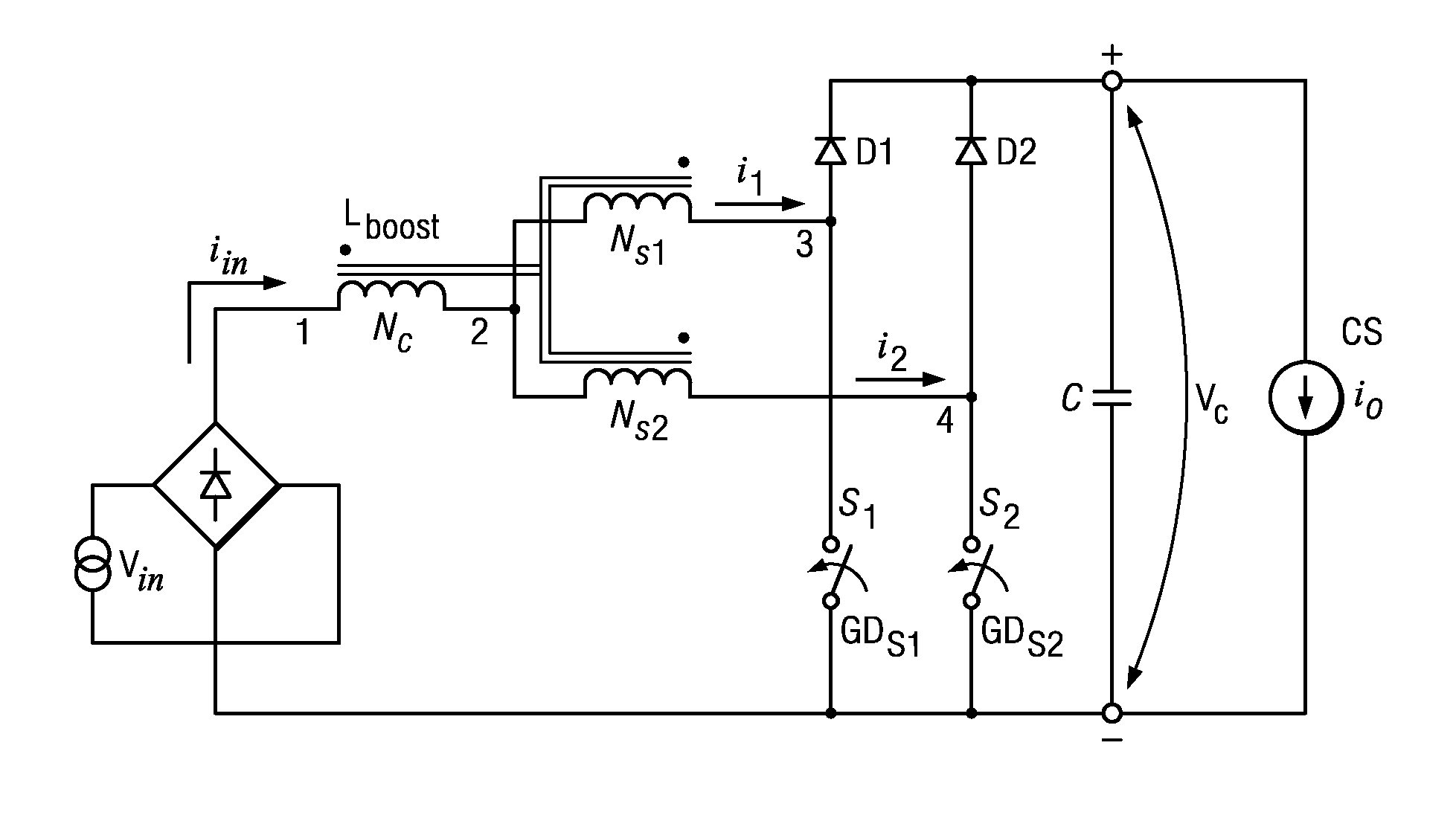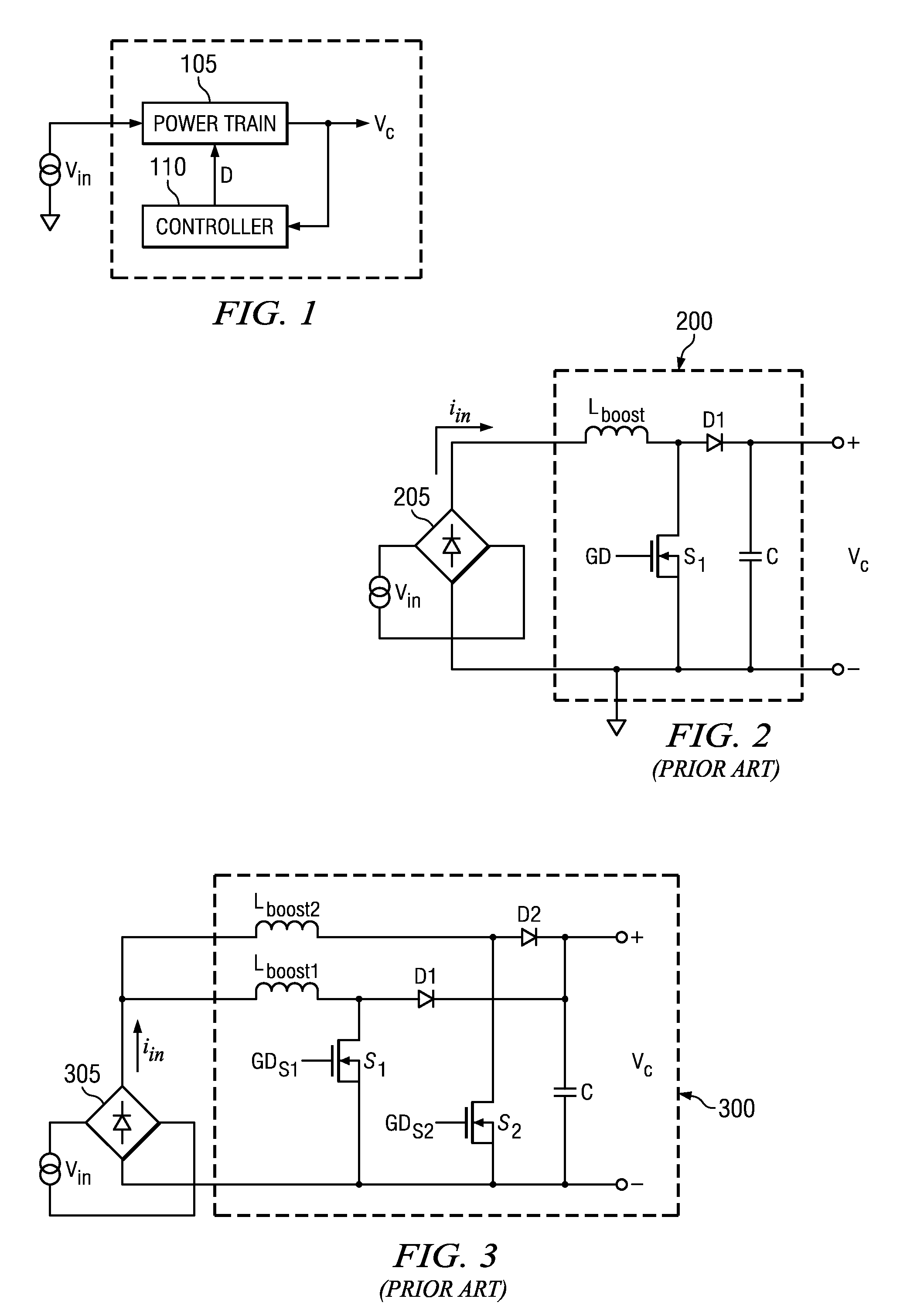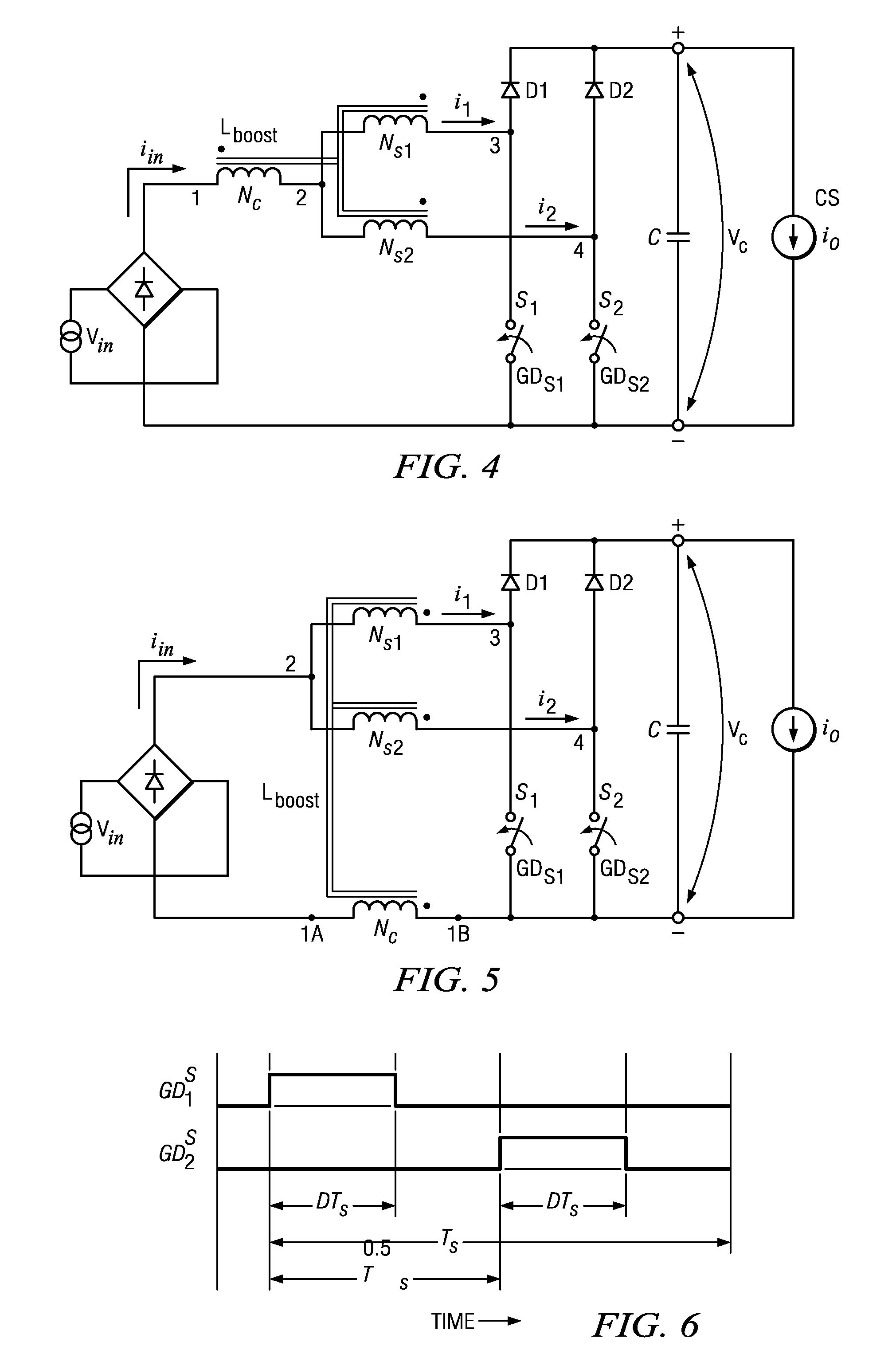Power converter employing regulators with a coupled inductor
a power converter and coupled inductor technology, applied in the direction of electric variable regulation, process and machine control, instruments, etc., can solve the problems of limited saturation flux density, low permeability, and higher permeability levels
- Summary
- Abstract
- Description
- Claims
- Application Information
AI Technical Summary
Benefits of technology
Problems solved by technology
Method used
Image
Examples
Embodiment Construction
[0030]The making and using of the presently preferred embodiments are discussed in detail below. It should be appreciated, however, that the present invention provides many applicable inventive concepts that can be embodied in a wide variety of specific contexts. The specific embodiments discussed are merely illustrative of specific ways to make and use the invention, and do not limit the scope of the invention.
[0031]The present invention will be described with respect to exemplary embodiments in a specific context, namely, a power converter including a coupled inductor and, more particularly, a power converter including a coupled inductor that is formed with at least three windings in an integrated magnetic device. The integrated magnetic device provides improved power conversion efficiency by accommodating a reduced volume of core material, reducing high-frequency switching ripple present in magnetic flux in legs (e.g., outer legs) of the magnetic core, and allowing the use of hig...
PUM
 Login to View More
Login to View More Abstract
Description
Claims
Application Information
 Login to View More
Login to View More - R&D
- Intellectual Property
- Life Sciences
- Materials
- Tech Scout
- Unparalleled Data Quality
- Higher Quality Content
- 60% Fewer Hallucinations
Browse by: Latest US Patents, China's latest patents, Technical Efficacy Thesaurus, Application Domain, Technology Topic, Popular Technical Reports.
© 2025 PatSnap. All rights reserved.Legal|Privacy policy|Modern Slavery Act Transparency Statement|Sitemap|About US| Contact US: help@patsnap.com



